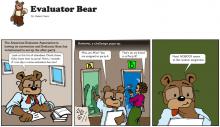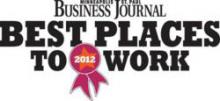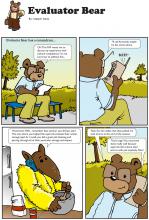Response to Intervention - by Leah Goldstein Moses & Cecelia Dodge
October 1, 2012 - 2:09pm
October 1, 2012 - 2:02pm
In a Randomized Control Trial (RCT), people are selected to receive a service at random, and results for both selected and non-selected people are tracked over time. RCTs are sometimes called the “gold standard” of evaluation. However, ethical, pragmatic or resource issues often make RCT a poor choice for evaluation.
What do people like about RCTs?
September 25, 2012 - 3:57pm
 As a result of the Improve Group’s partnership with Cecelia Dodge & Associates, LLC, we are offering a series of articles this fall that highlight the ways data can be used to improve instruction and transform schools for the achievement of ALL learners.
As a result of the Improve Group’s partnership with Cecelia Dodge & Associates, LLC, we are offering a series of articles this fall that highlight the ways data can be used to improve instruction and transform schools for the achievement of ALL learners. September 24, 2012 - 2:48pm
 As a result of the Improve Group’s partnership with Cecelia Dodge & Associates, LLC, we are offering a series of articles this fall that highlight the ways data can be used to improve instruction and transform schools for the achievement of ALL learners.
As a result of the Improve Group’s partnership with Cecelia Dodge & Associates, LLC, we are offering a series of articles this fall that highlight the ways data can be used to improve instruction and transform schools for the achievement of ALL learners.
July 12, 2012 - 5:58pm
Over the past several months, the Improve Group team spent some time reflecting on how cultural competence informs and is present in our work. There is extensive academic and practical work focusing on cultural competence, and we were able to explore several definitions (such as in this compilation).
Cultural competence is important to evaluation practice for several reasons:
July 9, 2012 - 8:36pm
As explained by the Balanced Scorecard Institute, the balanced scorecard was designed by Drs. Robert Kaplan and David Norton ”as a performance measurement framework that added strategic, non-financial performance measures to traditional financial metrics to give managers and executives a more balanced view of organizational performance” (see Balanced Scorecard Basics).
May 30, 2012 - 4:18pm
The Jay and Rose Phillips Family Foundation of Minnesota formed over a year ago to focus specifically on issues here; it is one of three foundations (the other two are focused on Colorado and California) that emerged from the prior Phillips Family Foundation.









